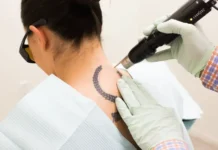Pregnancy is a magical time filled with anticipation, excitement, and plenty of physical changes. As your body goes through the incredible journey of growing a new life, your skin may also go through its own transformation.
From acne to hyperpigmentation, pregnancy can bring about a range of skin concerns that can be frustrating and even downright daunting.
But don’t worry, mama-to-be, we’ve got you covered! In this comprehensive guide, we’ll walk you through everything you need to know about taking care of your skin during pregnancy.
So sit back, relax, and get ready to glow like never before!
Avoid Harsh Chemicals
One of the most important things to keep in mind when it comes to skincare during pregnancy is to avoid harsh chemicals. This includes ingredients like retinoids, salicylic acid, and benzoyl peroxide, which can potentially harm your baby.
Instead, opt for gentle, natural ingredients that are safe for both you and your little one. Look for products that are labeled as “pregnancy safe” or “pregnancy-friendly.” Or, you can purchase premade pregnancy skin care set.
Keep Your Skin Hydrated
During pregnancy, your body goes through a lot of changes, and your skin is no exception. Many women experience dryness and dehydration, which can lead to irritation and even breakouts.
To combat this, make sure to keep your skin hydrated by drinking plenty of water and using a moisturizer that is specifically formulated for pregnancy. Look for ingredients like hyaluronic acid and glycerin, which are excellent at drawing moisture into the skin.
Protect Yourself from the Sun
Pregnancy can make your skin more sensitive to the sun, so it’s important to take extra precautions when it comes to sun protection. Make sure to wear a broad-spectrum sunscreen with an SPF of at least 30 every day, even on cloudy days. If you’re spending time outdoors, wear a hat and seek shade whenever possible. And don’t forget to reapply your sunscreen every two hours.
Be Mindful of Stretch Marks
Stretch marks are a common concern during pregnancy, but there are things you can do to minimize their appearance. One of the most effective ways to prevent stretch marks is to keep your skin hydrated by using a moisturizer that is specifically formulated for stretch marks. Look for ingredients like cocoa butter, shea butter, and vitamin E, which are excellent at nourishing and hydrating the skin.
Keep Your Skincare Routine Simple
During pregnancy, your body is already going through a lot of changes, so it’s important not to overload it with too many skincare products. Keep your skincare routine simple and stick to the essentials, like a gentle cleanser, moisturizer, and sunscreen. And remember, if you have any concerns about a specific ingredient or product, be sure to talk to your doctor or dermatologist.
Get Enough Sleep
Getting enough sleep is crucial for your overall health during pregnancy, but it’s also important for your skin. Lack of sleep can lead to dark circles, puffiness, and dull, tired-looking skin. Aim for at least seven to eight hours of sleep each night, and consider incorporating relaxation techniques like yoga or meditation to help you wind down before bed.
Consider a Facial
If you’re looking to pamper yourself during pregnancy, consider getting a facial. However, it’s important to make sure that the esthetician is knowledgeable about pregnancy-safe skincare and ingredients. Some treatments, like chemical peels and microdermabrasion, are not recommended during pregnancy. Stick to gentle, hydrating facials that will leave your skin looking and feeling refreshed.
Talk to Your Doctor
If you have any concerns about your skin or skincare routine during pregnancy, it’s always a good idea to talk to your doctor. They can offer guidance and recommend safe products and ingredients based on your individual needs. And if you experience any unusual skin changes, such as rashes or excessive dryness, be sure to bring them to your doctor’s attention right away.
Managing Pregnancy-Related Skin Concerns
Pregnancy can cause a variety of skin changes, some of which may require special attention. Here are some common skin concerns during pregnancy and how to manage them:
Acne
Many women experience acne during pregnancy due to hormonal changes. However, many acne treatments are not safe for use during pregnancy. Salicylic acid and benzoyl peroxide, for example, should be avoided. Instead, opt for gentle, pregnancy-safe products like those containing glycolic acid or lactic acid. You can also talk to your doctor about prescription options.
In addition, make sure to keep your skin clean and well-hydrated, and avoid touching your face as much as possible. And remember, acne during pregnancy is a common and temporary condition – it will likely improve after giving birth.
Hyperpigmentation
Pregnancy hormones can also cause hyperpigmentation, or darkening of the skin. This is particularly common on the face, known as the “mask of pregnancy” or melasma. To manage hyperpigmentation, avoid direct sun exposure as much as possible and wear a broad-spectrum sunscreen with at least SPF 30. You can also talk to your doctor about topical treatments or light therapy.
Varicose Veins
Varicose veins, or enlarged veins in the legs, are common during pregnancy due to increased blood volume and pressure. To manage varicose veins, avoid standing or sitting for long periods of time, elevate your legs when possible, and wear compression stockings. Gentle exercise like walking or swimming can also help improve circulation.
Itchy Skin
Some women experience itchy skin during pregnancy, particularly on the belly, due to stretching and hormonal changes. To manage itchiness, avoid hot showers or baths and use a fragrance-free, hydrating moisturizer. You can also talk to your doctor about prescription options for more severe cases.
Skincare Products to Avoid During Pregnancy
While there are many safe and effective skincare products to use during pregnancy, there are also several ingredients to avoid. Here are some common skincare ingredients to steer clear of while pregnant:
Retinoids
Retinoids, including retinol, tretinoin, and adapalene, are commonly used in anti-aging and acne treatments. However, they should be avoided during pregnancy, as they have been linked to birth defects.
Salicylic Acid
Salicylic acid is a popular ingredient in acne treatments and can be found in many over-the-counter products. However, high doses of salicylic acid have been linked to birth defects and should be avoided during pregnancy. Low doses of salicylic acid (up to 2%) may be safe, but it’s best to check with your doctor first.
Hydroquinone
Hydroquinone is a skin-lightening ingredient commonly used to treat hyperpigmentation. However, it should be avoided during pregnancy, as it has been linked to negative effects on fetal development.
Formaldehyde
Formaldehyde is a common preservative in many personal care products, including some nail polishes and hair straightening treatments. It is a known carcinogen and should be avoided during pregnancy.
Phthalates
Phthalates are commonly found in fragrances, nail polishes, and hair sprays. They have been linked to negative effects on fetal development and should be avoided during pregnancy.
Chemical Sunscreens
Chemical sunscreens, including oxybenzone and avobenzone, have been linked to negative effects on fetal development and should be avoided during pregnancy. Instead, opt for physical sunscreens containing zinc oxide or titanium dioxide.
Essential Oils
While many essential oils are safe and even beneficial for use during pregnancy, some can be harmful. Essential oils to avoid during pregnancy include basil, cinnamon, rosemary, thyme, and clary sage. Always check with your doctor or a qualified aromatherapist before using essential oils during pregnancy.
In addition to these specific ingredients, it’s also a good idea to avoid any skincare products that are heavily fragranced or contain artificial colors or dyes. Stick to natural, pregnancy-safe products whenever possible, and always check with your doctor before using any new skincare products or ingredients during pregnancy.
Prioritize a Healthy Diet
In addition to skincare products, eating a healthy and balanced diet is also crucial for maintaining healthy skin during pregnancy. Focus on consuming a variety of nutrient-rich foods, such as fresh fruits and vegetables, lean proteins, and healthy fats like avocado and nuts.
These foods contain antioxidants, vitamins, and minerals that support healthy skin, including vitamin C, vitamin E, and omega-3 fatty acids. Additionally, drinking plenty of water and staying hydrated can help keep your skin plump and glowing.
So, make sure to fill your plate with a rainbow of colorful foods and drink plenty of water to nourish your skin from the inside out.
Conclusion
In a nutshell, taking care of your skin during pregnancy is all about embracing your inner glow and nurturing your changing body with gentle, safe, and effective skincare practices.
It’s a time to simplify your routine, indulge in self-care, and celebrate the beauty of this miraculous journey. By prioritizing hydration, avoiding harmful chemicals, and being mindful of your skin’s changing needs, you can ensure that you and your baby stay healthy and radiant. And if you ever have any questions or concerns, don’t hesitate to reach out to your trusted healthcare provider or dermatologist for guidance.
Remember, you’re growing a new life inside of you, and your skin deserves nothing but the best!
Read Also: Why Do Nipples Turn A Darker Color During Pregnancy?



































































